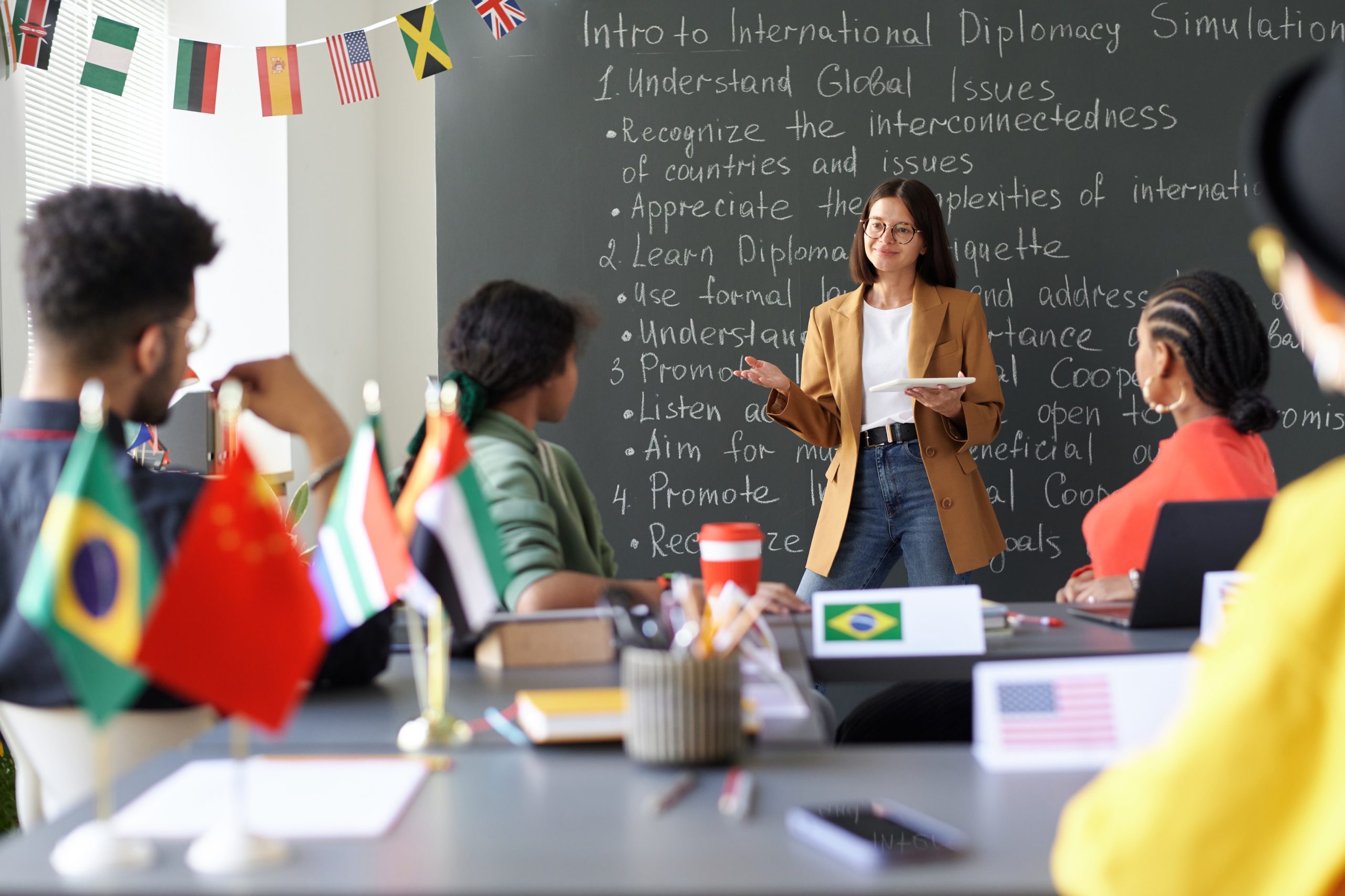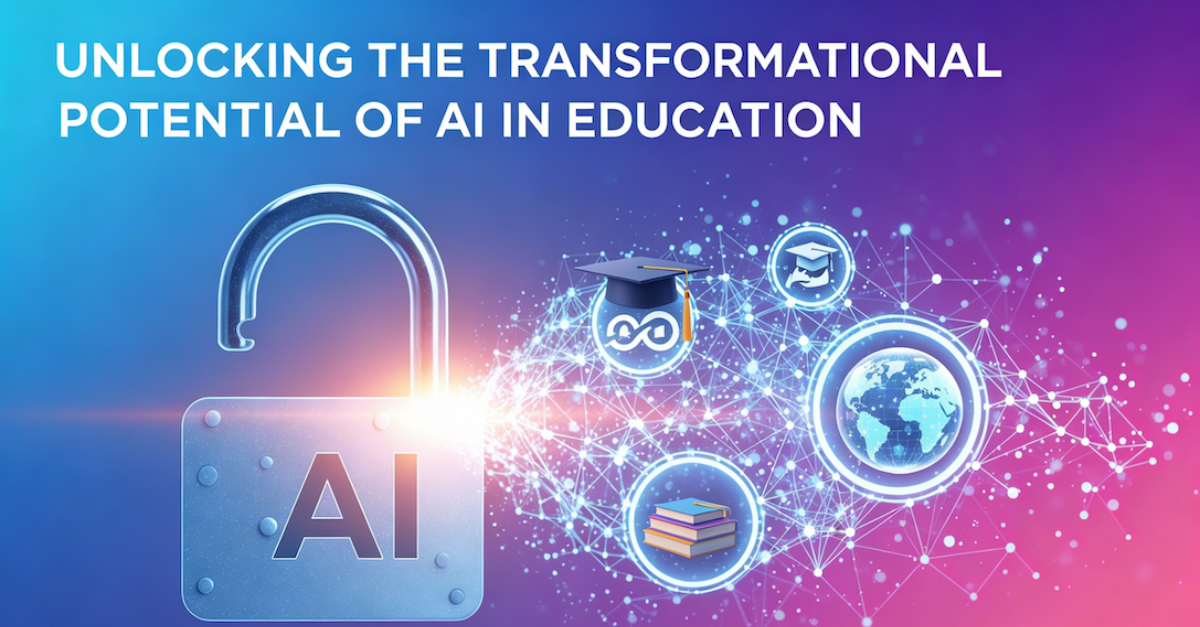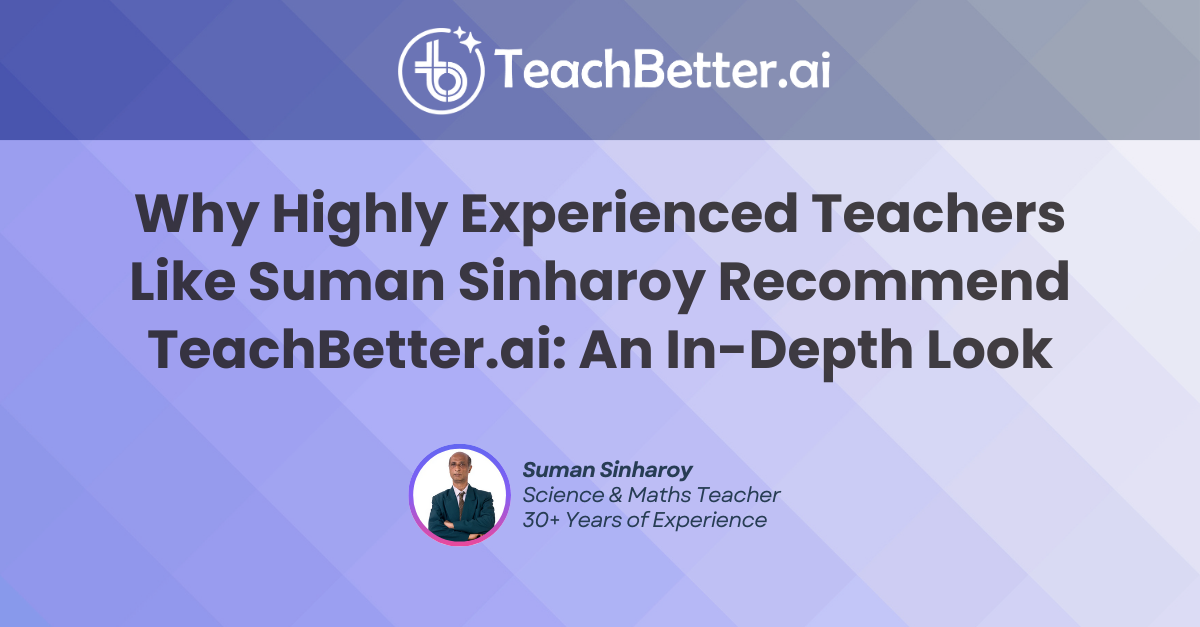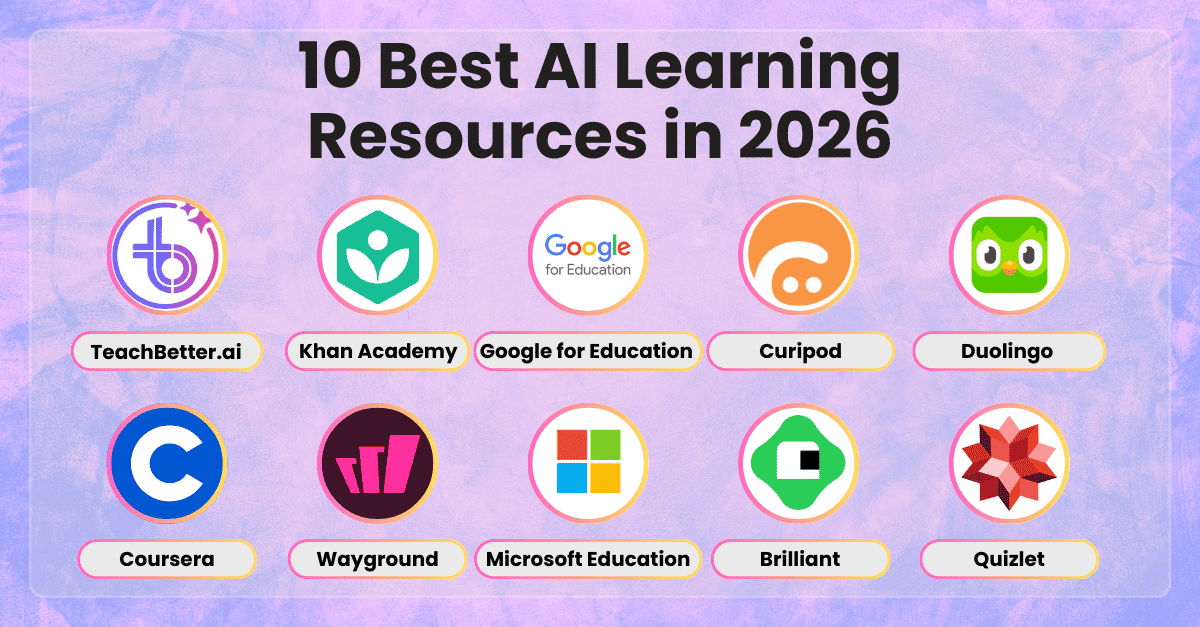The Knowledge Hub
Empowering Educators: How Generative AI can Revolutionise the IB Classrooms
TeachBetter.ai
|
2 February, 2025

The International Baccalaureate (IB) curriculum is renowned for its emphasis on critical thinking, global perspectives, and inquiry-based learning. Designed to develop students as well-rounded individuals, the IB curriculum presents unique opportunities for both educators and learners. However, its rigorous standards and holistic approach can also pose challenges for teachers, who often juggle lesson planning, assessments, and the integration of global contexts.
This is where generative AI steps in as a transformative ally. By streamlining workflows, supporting personalized instruction, and enhancing creative teaching strategies, generative AI can play a pivotal role in enabling teachers to deliver impactful learning experiences in IB classrooms.
Understanding the IB Curriculum: Key Features and Challenges
Before delving into how generative AI can support IB educators, it’s essential to understand the core elements of the IB curriculum and its demands on teachers.
Key Features of the IB Curriculum
- Inquiry-Based Learning: Students engage in self-directed inquiry to explore complex questions and solve real-world problems.
- Global Contexts: The IB curriculum emphasizes international-mindedness, fostering an understanding of diverse perspectives and cultures.
- Interdisciplinary Approach: Subjects are connected, encouraging students to apply knowledge across disciplines.
- Creativity, Activity, and Service (CAS): CAS emphasizes personal growth through creative projects, physical activity, and community service.
- Theory of Knowledge (TOK): TOK challenges students to reflect on the nature of knowledge and how it is acquired.
- Extended Essay: Students independently research and write 4,000-word essays on various topics of their choice.
Challenges for Teachers in IB Education
The program's emphasis on inquiry-based learning, global perspectives, and holistic development poses unique challenges for teachers, who must juggle diverse responsibilities. From designing interdisciplinary lessons to providing meaningful feedback, educators often face mounting pressures that can detract from their core passion for teaching. Some challenges for educators include:
- Designing inquiry-driven and interdisciplinary lesson plans.
- Catering to diverse student needs while maintaining rigor.
- Integrating global contexts and fostering critical thinking.
- Providing continuous feedback on assessments, essays, and CAS projects.
- Balancing administrative work with impactful teaching.
How Generative AI Supports Teachers in IB Classrooms
Generative AI has the potential to transform how educators navigate the complexities of the IB curriculum. Here’s how AI can support teachers across various aspects of the program:
1. Streamlining Lesson Planning
Designing lesson plans that align with IB’s inquiry-based and interdisciplinary framework can be time-consuming. AI can automate this process by generating well-structured, customizable lesson plans.
How AI helps:
- Creating interdisciplinary lesson outlines that connect multiple subjects (e.g., blending history and literature).
- Suggesting inquiry-based activities to encourage critical thinking.
- Adapting lesson content for different age groups and skill levels.
2. Supporting Differentiated Instruction
The IB curriculum often includes classrooms with diverse learners, each with unique needs and learning styles. AI can assist in personalizing education for every student.
How AI helps:
- Generating tailored study materials for students with varying proficiency levels.
- Recommending resources to support advanced learners or those who need additional help.
- Translating complex topics into simplified language for better understanding.
3. Enhancing Assessments and Feedback
Assessment in the IB curriculum is robust, from essays to group projects. Teachers spend significant time providing feedback and grading.
How AI helps:
- Automating essay evaluations and providing detailed feedback based on IB rubrics.
- Generating personalized improvement suggestions for students.
- Creating rubrics and tracking CAS progress seamlessly.
4. Facilitating Global Context Integration
Embedding international perspectives in lessons is central to the IB curriculum. Generative AI can simplify this process by curating globally relevant content.
How AI helps:
- Identifying case studies, examples, and research from different cultures.
- Generating classroom discussions or debates on global issues.
- Supporting teachers with multilingual translation for diverse classrooms.
5. Assisting with Extended Essay Support
Guiding students through the research-intensive Extended Essay process can be challenging for educators.
How AI helps:
- Suggesting research topics aligned with students’ interests.
- Generating thesis statement options for students to refine.
- Assisting with citation formatting and plagiarism checks.
6. Simplifying CAS Documentation and Reflection
Managing and evaluating CAS projects involves extensive documentation. AI can streamline this for teachers and students.
How AI helps:
- Creating templates for CAS reflections and activity logs.
- Analyzing project proposals for feasibility and alignment with CAS requirements.
- Providing ideas for community service and creative initiatives.
Key AI Use Cases in the IB Curriculum
Below are real-world examples of how generative AI can create impact in IB classrooms:
- Interactive TOK Discussions: AI generates thought-provoking prompts for Theory of Knowledge sessions.
- Global Case Studies: Teachers use AI to source diverse examples for global context lessons.
- Plagiarism Detection: AI tools analyze Extended Essays for originality and academic integrity.
- Creative Project Ideas: AI suggests innovative CAS activities aligned with student interests.
- Cross-Subject Integration: AI connects themes from different subjects to foster interdisciplinary learning.
Example Use Case: A teacher planning a history lesson on World War II can use AI to generate lesson plans that integrate perspectives from literature (e.g., analyzing war poetry) and TOK (e.g., discussing the ethics of historical narratives).
The Transformative Role of Generative AI in IB Classrooms
Generative AI is not just a productivity tool—it is a catalyst for redefining how education is delivered in IB classrooms. By automating administrative tasks, AI enables teachers to focus on what truly matters: inspiring their students and fostering a love for lifelong learning.
Key Benefits of AI in IB Education:
- Empowering Teachers: AI reduces the administrative burden, allowing educators to dedicate more time to teaching.
- Fostering Creativity: Teachers can explore creative teaching methodologies with AI-generated ideas.
- Enhancing Global Perspectives: AI supports the integration of culturally diverse content, enriching the learning experience.
Conclusion: Reimagining IB Education with TeachBetter AI
As the education landscape evolves, generative AI is emerging as a powerful ally for educators navigating the IB curriculum. It empowers teachers to overcome challenges, deliver personalized learning experiences, and create meaningful global connections in the classroom.
At TeachBetter.ai, we are building a platform designed to support educators in IB schools by simplifying lesson planning, enhancing assessments, and fostering creativity. While the platform is still in development, our vision is clear: to revolutionize education by empowering teachers with cutting-edge AI tools.
Together, let’s unlock the full potential of the IB curriculum and pave the way for a future where every teacher is equipped to inspire and every student is empowered to thrive. Stay tuned for updates on TeachBetter AI!
To stay updated on our latest developments, follow us on LinkedIn: https://www.linkedin.com/company/teachbetter/


